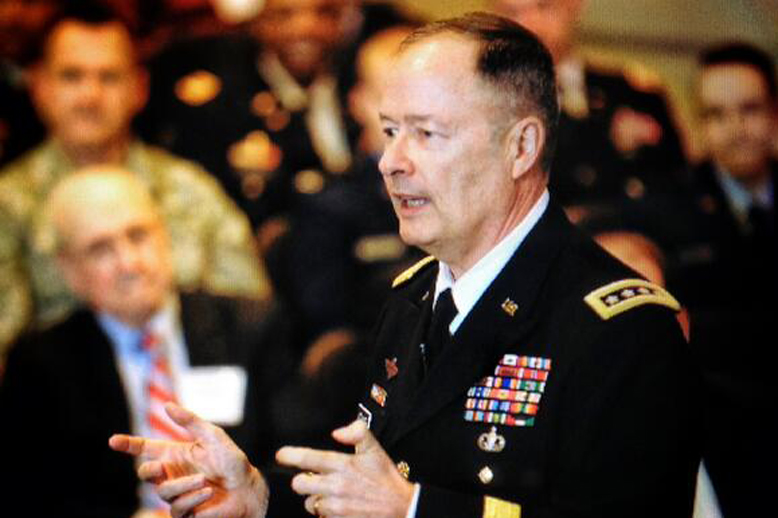On March 28 and 29, the Georgia Tech Cyber Security Symposium hosted Director of National Security Agency General Keith Alexander, the keynote speaker, at the Global Learning Center in order to highlight modern technology, challenges, and cyber security policies in today’s society.
The symposium also held seminars with respect to cyber security’s role in entrepreneurship, the market and politics.
”Atlanta is a national hub for cyber security and innovation and Georgia Tech is a major player through research much of which is done at thee GTRI… Georgia Tech has been a leader in computer security for a long time,” said Institute President G.P. “Bud” Peterson.
After Peterson continued about Tech’s goals of innovation, research and educational means, General Alexander, Director of Security Agency and Chief of the Central Security Service, discussed the future of cyber security and the steps to improve its progression.
Alexander stated that communication between different sectors in society is necessary to improving cyber security and preventing threats.
“Right now the ability to share real time information and threaded information is complicated and there are legal barriers to that. We need to overcome that,” Alexander said. “We just need to share threat information that we see on computer equipment.”
Alexander further discussed the need for government to take an active role in cyber threats across the country through legislation and communication across society.
“The government depends on industry for our power or the Internet, and if we lose that, our ability to do our job is hugely inept for that,” Alexander said.
Many Tech faculty members also voiced their opinions and ideas for cyber security based on their research and personal work. Andrew Howard, a Research Scientist for GTRI, developed an automated and correlated malware analysis system for the community with his coworkers in order to boost public cyber security.
When he was asked about his system, Howard stated, “So we are taking all of these threats, correlating them together and spitting them back out to the community…Members simply insert malware into the system and it typically spits out information on it in a few minutes.”
In addition to Tech faculty, members of the business community attended the event with their own messages on cyber security. David Dewey, founder of Bluebox discussed eliminated information theft across the world, David Moeller, founder of CodeGuard, promoted website safety and protection, and Adam Ghetti, founder of Social Fortress, talked about personal data security.
Cyber security stands as a strong investment for many individuals, and even Tech students have firm opinions on cyber security.
“I think that in a nation where technology is growing so rapidly, and…cybersecurity is quickly becoming a necessary issue to address,” said first-year ChBE major Caleb Jarriel. “Cyber security attacks can have devastating effects on national security, and we should take any precautions we can to enhance the security.”
Cyber security has stood as a point of political debate in recent months, and political conflict has sparked over Internet piracy, congressional reforms on Internet freedom and the definition cyber crimes.
